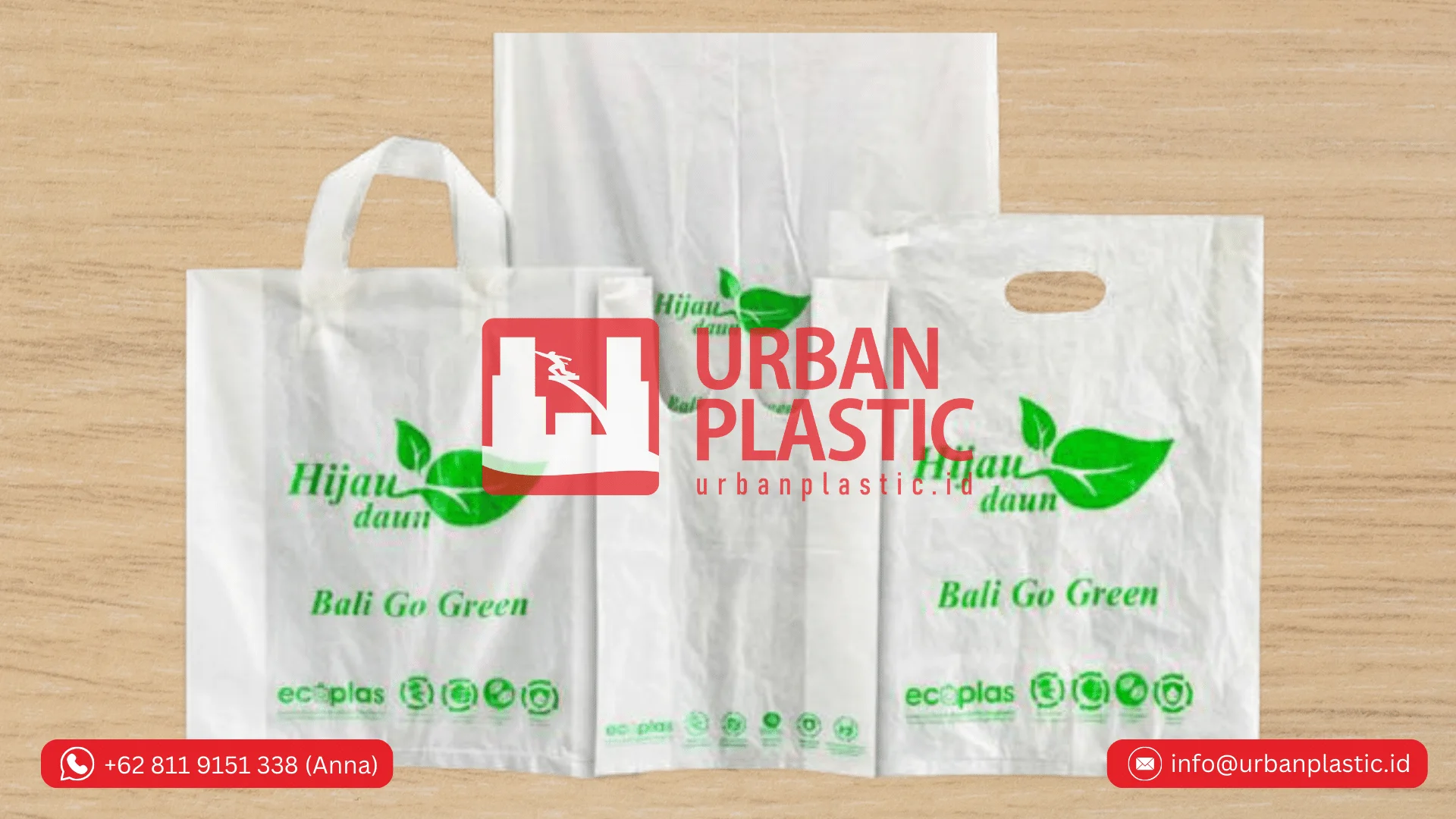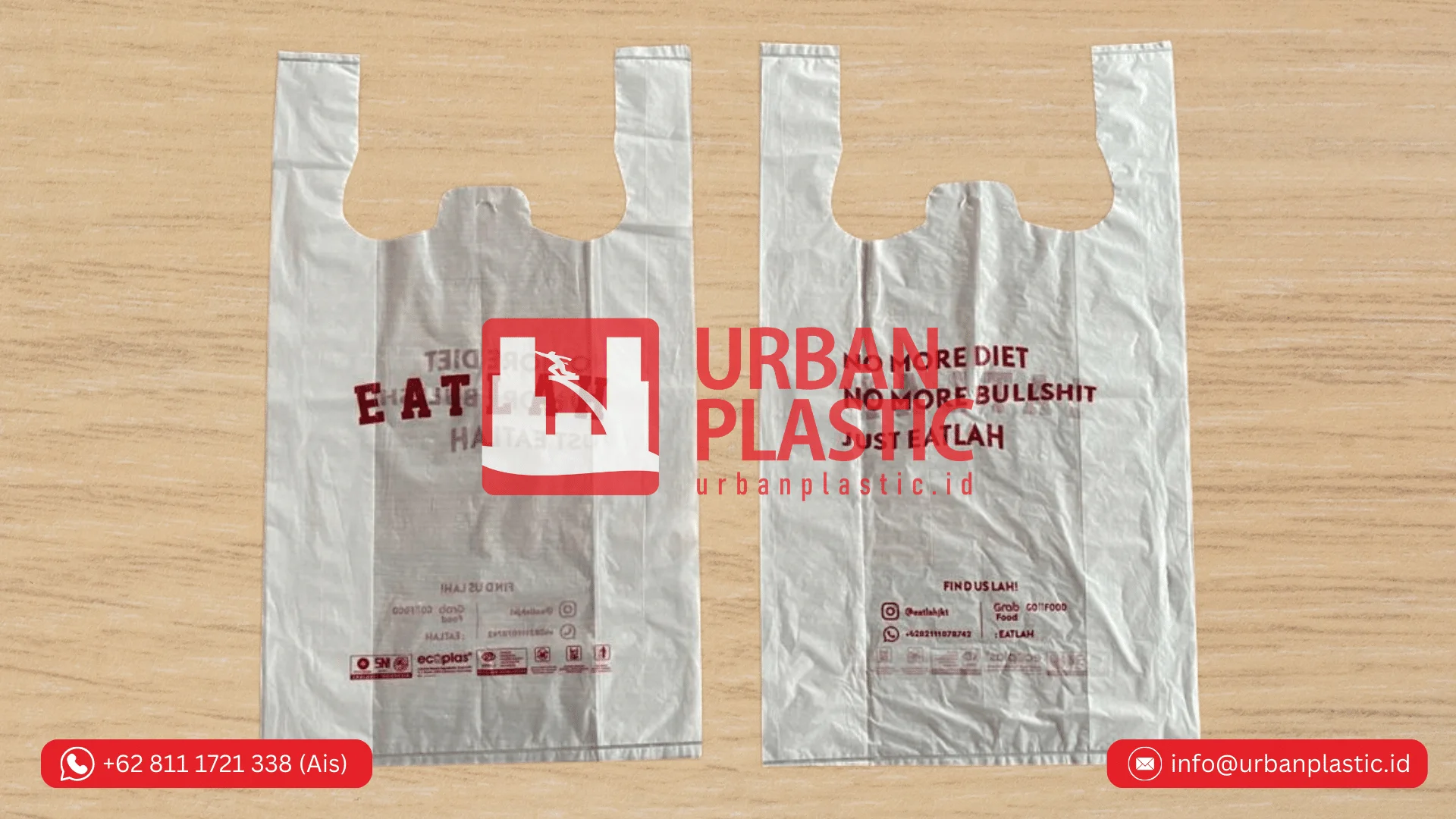As the world becomes increasingly aware of the need for sustainable living, innovative solutions are emerging in unexpected places. One such solution is the Indonesia Cassava Bag, which is now making waves in the Australian eco-friendly movement. These bags, made from cassava starch, are a revolutionary alternative to single-use plastic bags.
The Indonesian company behind this groundbreaking product has combined technology and environmental consciousness to create a bag that is not only biodegradable but also dissolves in water. This means that when disposed of properly, the bag leaves no harmful trace behind.
With the Australian government cracking down on plastic waste and encouraging the use of environmentally-friendly alternatives, the Indonesia Cassava Bag has gained popularity among eco-conscious consumers. Its sustainability, affordability, and durability make it a viable option for daily use.
By choosing these cassava bags, Australians are contributing to a greener future and reducing their carbon footprint. With their eye-catching designs and commitment to eco-friendly practices, the Indonesia Cassava Bag is becoming a symbol of the sustainable lifestyles championed by Australians.
Embrace the green movement and make a lasting impact with the Indonesia Cassava Bag – the smart choice for a sustainable future.


The Problem with Single-Use Plastic Bags
Plastic bags have become an integral part of our daily lives, but their convenience comes at a significant cost to the environment. Single-use plastic bags take hundreds of years to decompose, and during that time, they release harmful chemicals into the soil and water. This pollution has devastating effects on wildlife and ecosystems.
Moreover, the production of plastic bags consumes valuable resources and contributes to carbon emissions. The demand for plastic bags has reached alarming levels, with billions of bags used and discarded each year. It’s clear that a more sustainable alternative is needed.
Overview of the Cassava Bag and Its Benefits
Enter the Indonesia Cassava Bag, a game-changer in the world of eco-friendly alternatives. These bags are made from cassava starch, a renewable resource that is abundant in Indonesia. Cassava is a tropical root vegetable that is not only environmentally friendly but also biodegradable.
The cassava bags offer numerous benefits over traditional plastic bags. Firstly, they are completely biodegradable, breaking down naturally and returning to the environment without leaving harmful residues. This eliminates the long-term pollution caused by plastic bags.
Secondly, these bags are water-soluble, meaning they dissolve completely in water without releasing any toxic substances. This makes them an even safer option for the environment, as they can be safely disposed of in water bodies without causing any harm to aquatic life.
Lastly, cassava bags are durable and strong, capable of carrying heavy loads without tearing or breaking. This makes them a practical choice for everyday use, offering the convenience of plastic bags without the environmental impact.
How the Cassava Bag is Made
The production process of the cassava bag is a fascinating blend of technology and sustainability. It starts with the extraction of starch from cassava roots, which is then mixed with water and other natural additives to form a dough-like substance.
This dough is then shaped into thin sheets and dried to remove excess moisture. The sheets are cut into the desired bag size and sealed using a heat-sealing technique that doesn’t require any harmful chemicals or adhesives.
The result is a sturdy and reliable bag that can be used for a variety of purposes, from grocery shopping to carrying personal belongings. The manufacturing process ensures that the bags are produced efficiently and with minimal impact on the environment.
The Success of the Cassava Bag in Indonesia
In Indonesia, where the cassava bag was first introduced, it has gained significant traction among environmentally conscious consumers. The bags have become a symbol of sustainability and responsible consumerism.
The Indonesian government has also played a crucial role in promoting the use of cassava bags. They have implemented policies to restrict the production and distribution of single-use plastic bags, incentivizing businesses and consumers to switch to more eco-friendly alternatives.
This support from the government, combined with the growing awareness of the environmental impact of plastic bags, has led to a surge in demand for cassava bags. Local businesses and supermarkets have embraced this eco-friendly trend, offering cassava bags as a viable alternative to plastic bags.
Consumer Response to the Cassava Bag in Australia
With the Australian government’s commitment to reducing plastic waste and promoting sustainable practices, the cassava bag has found a receptive audience among Australian consumers. People are increasingly conscious of their environmental footprint and are actively seeking out eco-friendly alternatives.
The affordability and durability of the cassava bag have contributed to its popularity in Australia. Consumers appreciate that they can make a positive impact on the environment without compromising on quality or convenience. The bags are not only affordable but also reusable, making them a cost-effective long-term solution.
Furthermore, the eye-catching designs of the cassava bags have made them a fashion statement among eco-conscious Australians. With a wide range of colors and patterns to choose from, consumers can express their personal style while advocating for a greener future.
The Impact of the Cassava Bag on the Environment
The environmental impact of the cassava bag cannot be overstated. By choosing these bags over traditional plastic bags, Australians are actively reducing their carbon footprint and minimizing their contribution to plastic pollution.
The biodegradability of cassava bags ensures that they break down naturally, leaving no harmful residues behind. This eliminates the risk of pollution and protects the delicate balance of ecosystems. Additionally, the water solubility of these bags means that they can be safely disposed of in water bodies, further reducing the environmental impact.
The use of cassava bags also conserves valuable resources. The production of plastic bags requires significant amounts of oil and energy, contributing to greenhouse gas emissions. By opting for cassava bags, Australians are taking a step towards a more sustainable future.
Other Eco-Friendly Initiatives in Australia
The popularity of the cassava bag in Australia is just one example of the country’s commitment to sustainability. Australians are actively embracing eco-friendly initiatives and making conscious choices to protect the environment.
Supermarkets and retailers across the country are encouraging the use of reusable bags by offering incentives and discounts. This has led to a significant reduction in plastic bag consumption and a shift towards more sustainable alternatives.
In addition to reducing plastic waste, Australia is investing in renewable energy sources and implementing recycling programs. The government is also supporting initiatives to promote sustainable agriculture and reduce carbon emissions.
Conclusion: The Future of the Cassava Bag in Australia
The Indonesia Cassava Bag has emerged as a frontrunner in the Australian eco-friendly movement, providing a sustainable alternative to single-use plastic bags. Its biodegradability, water solubility, and durability make it a practical choice for eco-conscious consumers.
As the Australian government continues to prioritize sustainable practices and reduce plastic waste, the demand for cassava bags is expected to grow. The bags are not only an effective solution to the plastic pollution problem but also a symbol of the sustainable lifestyles embraced by Australians.
By choosing the Indonesia Cassava Bag, Australians can make a tangible impact on the environment and contribute to a greener future. Together, we can create a world where sustainable alternatives replace harmful practices, one cassava bag at a time.
For more information about cassava bag please contact: Whatsapp/Mobile Phone: +62 822 9933 3938 (Ms. Panni) or Email : info@urbanplastic.id

